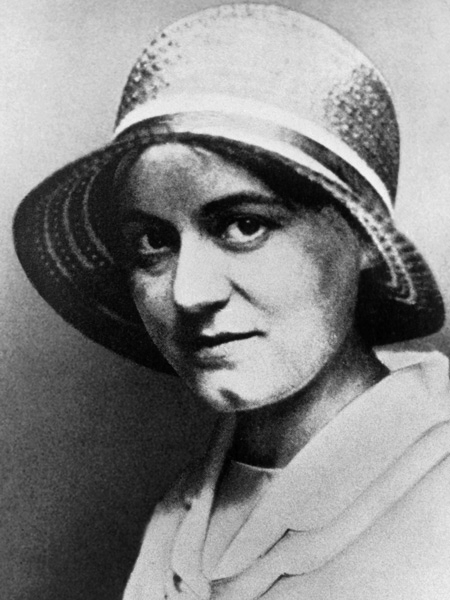
Brilliant Philosopher, Catholic Convert, Modern-Day Martyr
St. Teresa Benedicta of the Cross
Edith Stein was born as the youngest of 11 children into a prominent Jewish family in Breslau, Germany on October 12th, 1891. That year her birthday coincided with Yom Kippur, the Jewish Day of Atonement and the holiest day of the Hebrew calendar. Although her father died when she was young, her mother worked hard to keep the family business afloat. From an early age, Edith was a gifted scholar, scoring high marks in almost every subject. She loved learning for its own sake. One teacher said of her, “Strike the stone [Stein] and wisdom will spring forth”.
Although she had hunger for knowledge, Edith became a solid atheist when she was thirteen. She continued her search for truth at different universities, obtaining a doctorate of philosophy from the University of Freiburg in 1916. One night in 1921, while on vacation, she came across the autobiography of St. Teresa of Avila. She was captivated by the truth of what she read and stayed up all night to finish the book. After completing it, she knew she had to enter the Catholic Church. She was baptized on January 1st, 1922.
Edith desired to enter religious life soon after her conversion, but out of the fear of grieving her mother, she decided to wait. She began to teach at a Dominican nuns’ school and continued deepening in her faith, love, and pursuit of the truth. A brilliant philosopher and writer, she lectured both in Germany and across Europe on the dignity and vocation of women, and many of her writings later influenced St. John Paul II and his understanding of the feminine genius. She taught that, as women, “The nation… doesn’t simply need what we have. It needs what we are.” Throughout this time, however, she longed to give herself completely to God for the sake of her people.
On Work: “I don’t use any extraordinary means to extend my worktime. I just do whatever I can. Apparently, what I can do increases in proportion to the number of things that have to be done. When nothing urgent is called for, my energy gives out much faster. Heaven has a sense of economy… It all depends on having a quiet little corner where you can talk to God on a daily basis as if nothing else existed… and regarding yourself completely as an instrument, so that you treat your most frequently demanded talents, not as something that you use, but as God working through you.”
In 1933 at the age of forty-three, her dreams of entering a Carmelite monastery were finally fulfilled. She took the name Teresa Benedicta of the Cross, at Our Lady of Peace Monastery in Cologne, Germany. Even as a cloistered nun, she continued her philosophical and theological writings. She shared her intellectual gifts with her sisters, giving them conferences while they taught her how to sew. “God is there in these moments of rest and can give us in a single instant exactly what we need”, she said. “Then the rest of the day can take its course, under the same effort and strain, perhaps, but in peace. And when night comes, and you look back over the day and see how fragmentary everything has been, and how much you planned that has gone undone, and all the reasons you have to be embarrassed and ashamed: just take everything exactly as it is, put it in God’s hands and leave it with Him. Then you will be able to rest in Him — really rest — and start the next day as a new life.”
The growing threat of Nazism, however, loomed over Germany, and gave Edith a sense that her life would be offered in sacrifice for her Jewish people. She was then transferred to a Carmel in the Netherlands in hopes of safety. Out of retaliation against the Dutch bishops, the Nazis rounded up all Catholics of Jewish descent, arresting Edith and other religious. In August of 1942, they were sent a transit camp by train before heading to Auschwitz.
In a camp that was filled with despair and utter chaos, Sr. Benedicta held an extraordinarily peaceful composure. One witnesses said, “Edith Stein went among the women like an angel, comforting, helping, and consoling them. Many of the mothers were on the brink of insanity and had sat moaning for days, without giving any thought to their children…She washed them, combed their hair, and tried to make sure they were fed and cared for.”
Edith and her sister Rosa, also a Catholic, died in the gas chambers on August 9, 1942. Pope John Paul II canonized St. Edith Stein as a martyr on October 11th, 1998.
Feast Day: August 9

